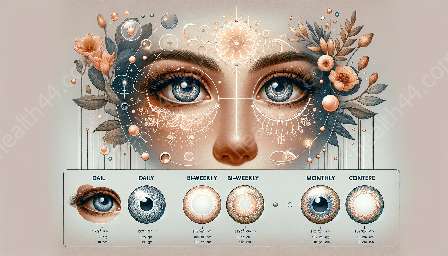Wearing contact lenses can significantly improve vision, but it also comes with the risk of developing contact lens-related infections. These infections can cause discomfort and potentially damage the eyes if not managed properly. If you suspect that you have a contact lens-related infection, it's crucial to take immediate action to prevent further complications and seek appropriate medical attention.
Recognizing the Signs of a Contact Lens-Related Infection
Before discussing what to do if you suspect an infection, it's important to be familiar with the signs and symptoms that may indicate a contact lens-related infection. These may include:
- Redness or irritation in the eyes
- Pain or discomfort while wearing contact lenses
- Excessive tearing or discharge
- Sensitivity to light
- Blurred or decreased vision
If you experience any of these symptoms, it's crucial to act promptly to prevent the potential worsening of the infection.
Immediate Actions to Take
If you suspect that you have a contact lens-related infection, there are several immediate actions you should take:
- 1. Remove Your Contact Lenses: If you wear contact lenses and experience symptoms of an infection, take them out immediately. Continuing to wear them can exacerbate the infection and cause further discomfort.
- 2. Consult an Eye Care Professional: Seek prompt medical attention from an optometrist or ophthalmologist. They can assess your condition and provide the necessary treatment.
- 3. Avoid Rubbing Your Eyes: It's important to refrain from rubbing your eyes, as this can introduce additional bacteria and worsen the infection.
- 4. Do Not Attempt Self-Treatment: While it may be tempting to use over-the-counter eye drops or remedies, it's essential to consult a healthcare professional before using any medication.
Following Treatment Guidance
After seeking medical attention and receiving a diagnosis for a contact lens-related infection, it's vital to adhere to the treatment plan outlined by your healthcare provider. This may involve:
- Using prescription eye drops or medications as directed
- Practicing proper hygiene, such as handwashing before handling contact lenses
- Discontinuing contact lens wear until the infection has resolved
- Frequent follow-up appointments to monitor the condition
Preventing Future Infections
While dealing with a contact lens-related infection can be concerning, there are measures you can take to reduce the risk of future infections:
- 1. Routine Eye Exams: Schedule regular eye exams with your optometrist to ensure your eyes are healthy and your contact lens prescription is up to date.
- Proper Contact Lens Care: Adhere to strict hygiene practices when handling and storing your contact lenses. This includes cleaning and disinfecting them as recommended.
- Avoiding Extended Wear: Follow the prescribed wearing schedule for your contact lenses and avoid wearing them for longer durations than recommended.
- Avoiding Water Contact: Never expose your contact lenses to water, whether it's tap water, showers, or swimming pools, as it can introduce harmful bacteria.
Conclusion
It's essential for contact lens wearers to be vigilant about the possibility of developing contact lens-related infections. If you suspect an infection, take immediate action by removing your contact lenses and seeking professional medical attention. By adhering to treatment guidance and practicing preventive measures, you can safeguard your eye health and continue enjoying the benefits of wearing contact lenses.





















